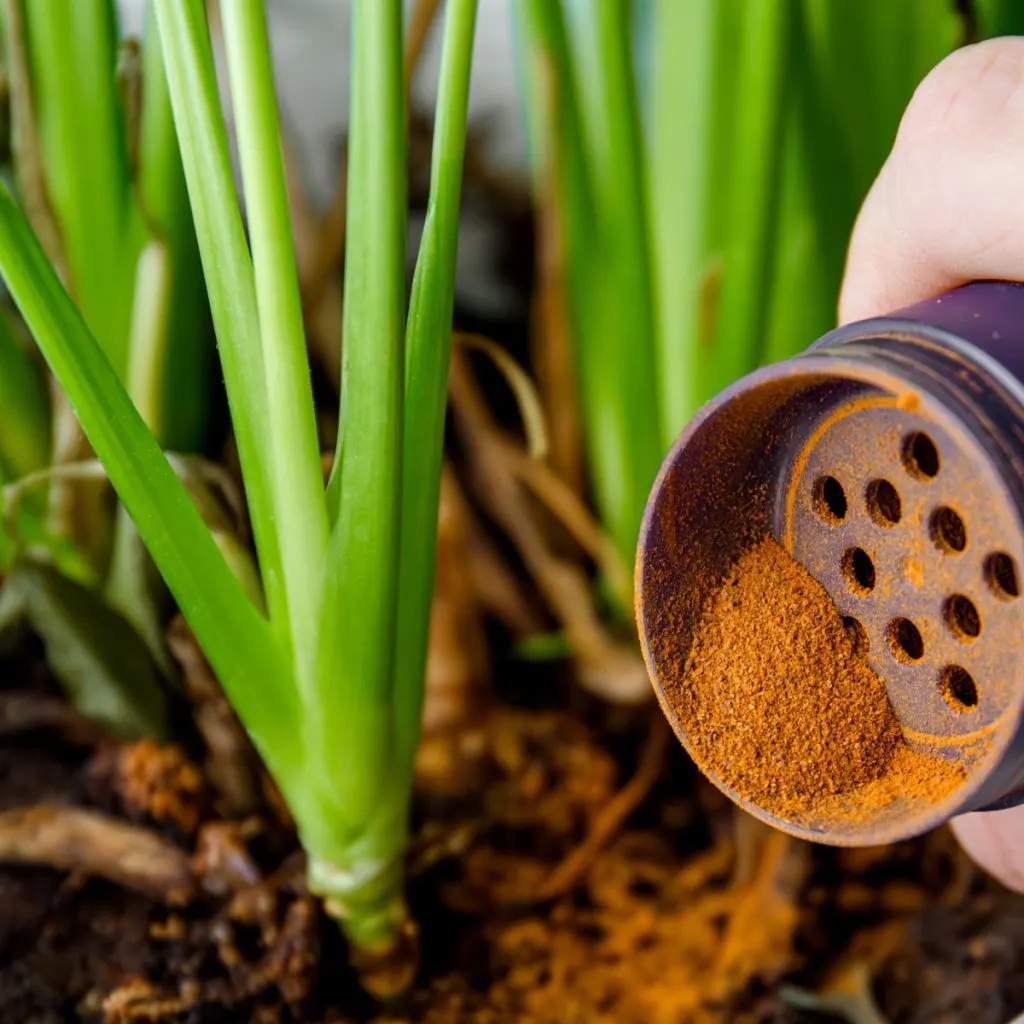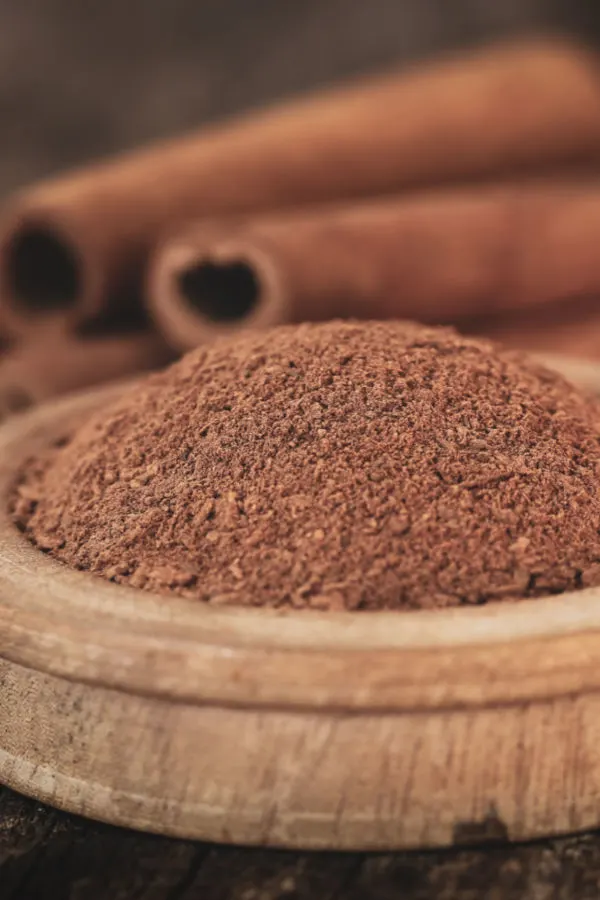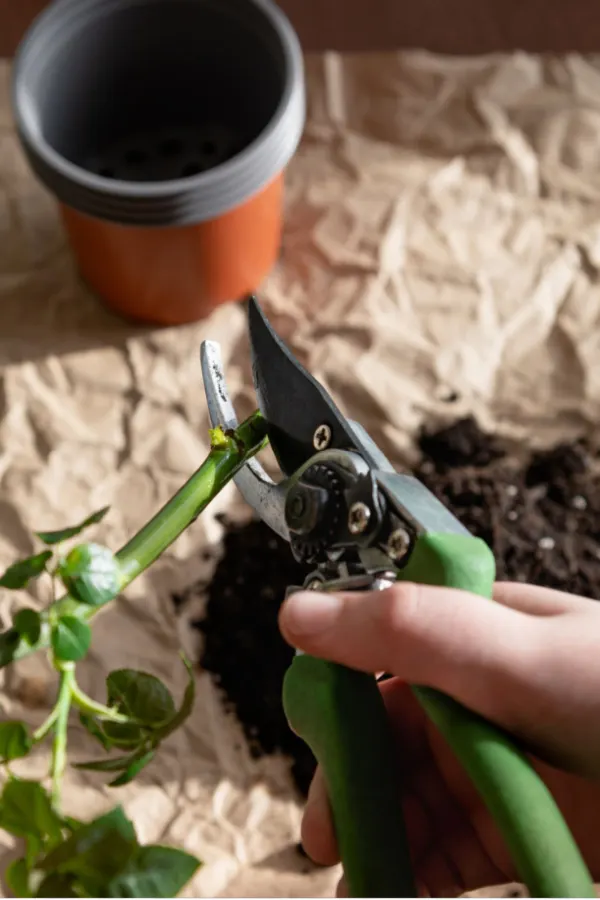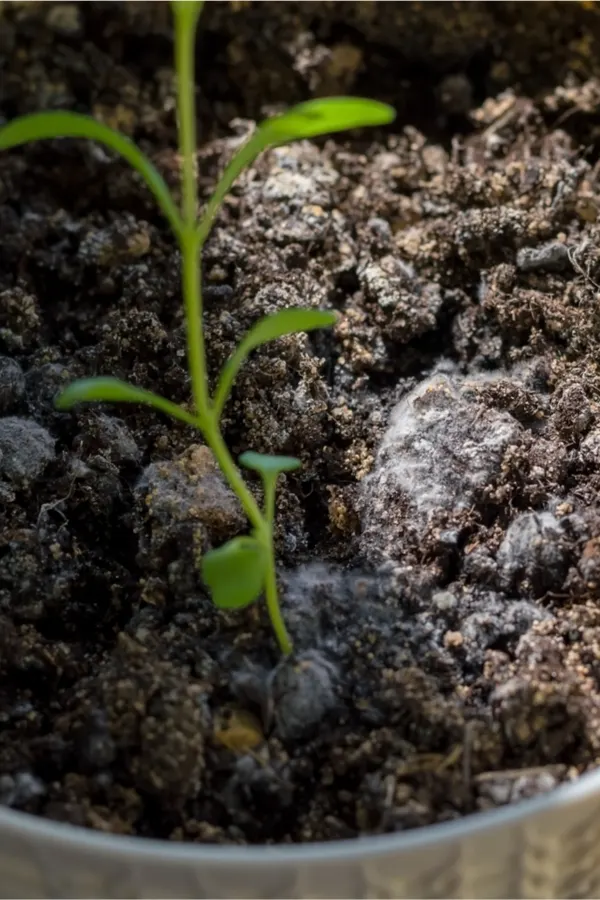Did you know that you can use all-natural cinnamon to help protect the plants growing in your flowerbeds and garden from pests and disease – and help to build better soil at the same time?
It’s true – although cinnamon has long been known to provide a wide array of benefits to humans as an anti-inflammatory and anti-bacterial agent, it can also help your plants to a healthier life.
Cinnamon has been a helpful garden aid for centuries in the agricultural world. Its natural powers range far and wide when it comes to both helping plants grow, and keeping them safe from disease and pests. And as you will see in today’s article – it couldn’t be more safe and easy to use.

With that in mind, here are 5 great ways to use cinnamon to help you grow better this year – naturally!
5 Great Ways To Use Cinnamon In Flowerbeds & Gardens
1 – Use Cinnamon To Deter Rabbits, Squirrels, Chipmunks & Mice
When it comes to protecting potted plants and containers from rabbits, squirrels and more, cinnamon is an excellent solution. The scent of cinnamon is offensive to a long list of animals. And by strategically sprinkling cinnamon around the edge of containers and baskets, most pests will simply leave it alone and move on.
The good news is that even with its strong smell, cinnamon will not cause any harm to the plants. In fact, not only will it not injure plants, its antibacterial qualities can also help to prevent mold or mildew from appearing on the soil surface as well, further protecting your plants!
Many gardeners use the double approach of cinnamon and hot pepper spray to completely eliminate small animals from munching on their crops. See our article: How To Make Hot Pepper Spray – Protect Your Plants From Insects, Deer, Rabbits & More!

2 – Repel Ants – How To Use Cinnamon In Flowerbeds & Gardens
Much as with small animals, cinnamon can also be a great all-natural solution to repel ants too. Its pungent scent will help to repel ants in the garden, on flowering annuals and perennials, or anywhere you use it.
Ants are not fond of cinnamon powder in the least. In fact, they will go out of their way to avoid it! To protect plants, sprinkle cinnamon around the base of the plant. For a large bedding or area of plants, sprinkle it all throughout the soil, and then around the outer edge of the bed. Affiliate Product Link: Spice Classics Ground Cinnamon, 18 oz – One 18 Ounce Container of Ground Cinnamon Powder
If ants are a problem in raised beds, you can also mix the cinnamon directly into the soil to keep them from creating their tunnels in the space. This can also work if you happen to have ants in your child’s sandbox. Simply mix in cinnamon with the sand to keep them far away.
For in-home protection, sprinkle cinnamon at doors or entry points. You can also use cinnamon sticks for this purpose as the strong smell of the spice will keep them moving on.
3 – Use Cinnamon As A Rooting Agent – How To Use Cinnamon In Gardens & Flowerbeds
Trying to root a new plant from a cutting or division? Cinnamon’s natural fungicidal properties are also extremely helpful when rooting new cuttings. This is great for cuttings from roses and all kinds of other perennials!

Cinnamon is like sulfur in that it acts beneficially to the spores that prevent stem cuttings from rotting. But it also helps those cuttings root and grow better. Cinnamon is proven to bring twice the growth of a stem cutting when it is mixed with rooting hormones.
To use as a rooting hormone, pour a spoonful of cinnamon powder on a small plate or hard surface. Next, dampen the ends of your cuttings and place them into the cinnamon powder. The coating of cinnamon will protect the exposed roots from fungi and help with root growth activity.
4 – Use To Prevent Damping Off – How To Use Cinnamon In Gardens & Flowerbeds
Damping off is a disease that can kill young seedlings in the blink of an eye. It can be quite common for those who raise transplants indoors from seed or simply trying to seed crops in their garden.
When the soil is overly moist, it can create favorable conditions for fungus to develop. Fungus that then spreads easily to the seedlings. The good news is that cinnamon can help prevent the fungus fairly easily with a simple, two-pronged approach.

To use cinnamon as a damping-off agent, mix one tablespoon of cinnamon powder with half a quart of water. In essence, you are creating your very own anti-fungal solution – one that is completely organic and natural.
To use, pour the solution over the soil bed where you plant your seedlings. Next, sprinkle a light coating of ground cinnamon on the surface of the soil. The combination of the two will allow your seedlings to grow without worry of the deadly fungus developing.
5 – Use Cinnamon To Heal Plant Cuts
Cinnamon’s anti-bacterial and anti-fungal properties make it wonderful for using as a wound sealant for plants. When pruning off large branches or stems in the garden or in flowerbeds from plants, dip the open cut into cinnamon to help seal and protect the open wound.
Likewise, if a branch or stem sustains damage, applying cinnamon to the area can help to heal the plant, all while protecting the damaged area from disease or fungus.
The sap will usually adhere to the cinnamon with ease, however, you can add a bit of water to the cinnamon to form a paste that will stick to the open cut with ease.

Using Cinnamon Indoors!
In addition to using cinnamon outdoors in your flowerbeds and gardens – it’s great indoors too. Many potted plants, hanging baskets and houseplants will have mold form on the top of their soil. This is caused by an overabundance of moisture, along with the many minerals that can often be present in potting soils or from fertilizers that are being applied to them.
Not only are the mold and algae unsightly, they can also harm the plants. The easy fix? Sprinkling ground cinnamon or cinnamon powder on the soil surface. It will kill fungi, mold and algae in a flash!
When first planting or repotting houseplants and outdoor container plants, you can also mix cinnamon powder into the soil to help prevent mold and fungus from the start. In addition to helping ward off mold, the cinnamon has the added benefit of helping the roots of plants grow better as well.
The organic contents of cinnamon are perfect for increasing the root growth of plants. The spice’s content works to help the stem cuttings or seedlings sustain growth. Even better, all while protecting the plant with its antimicrobial and anti-bacterial qualities.
Here is to using cinnamon in your gardens, flowerbeds and yes, even indoors too!
This Is My Garden
Follow Our Facebook Page For Great Gardening Tips And Advice! This Is My Garden Facebook Page
This Is My Garden is a garden website created by gardeners, for gardeners. Jim and Mary Competti have been writing gardening, DIY and recipe articles and books and speaking for over 15 years from their 46 acre Ohio farm. They publish three articles every week, 52 weeks a year. Sign up today to follow via email, or follow along!
